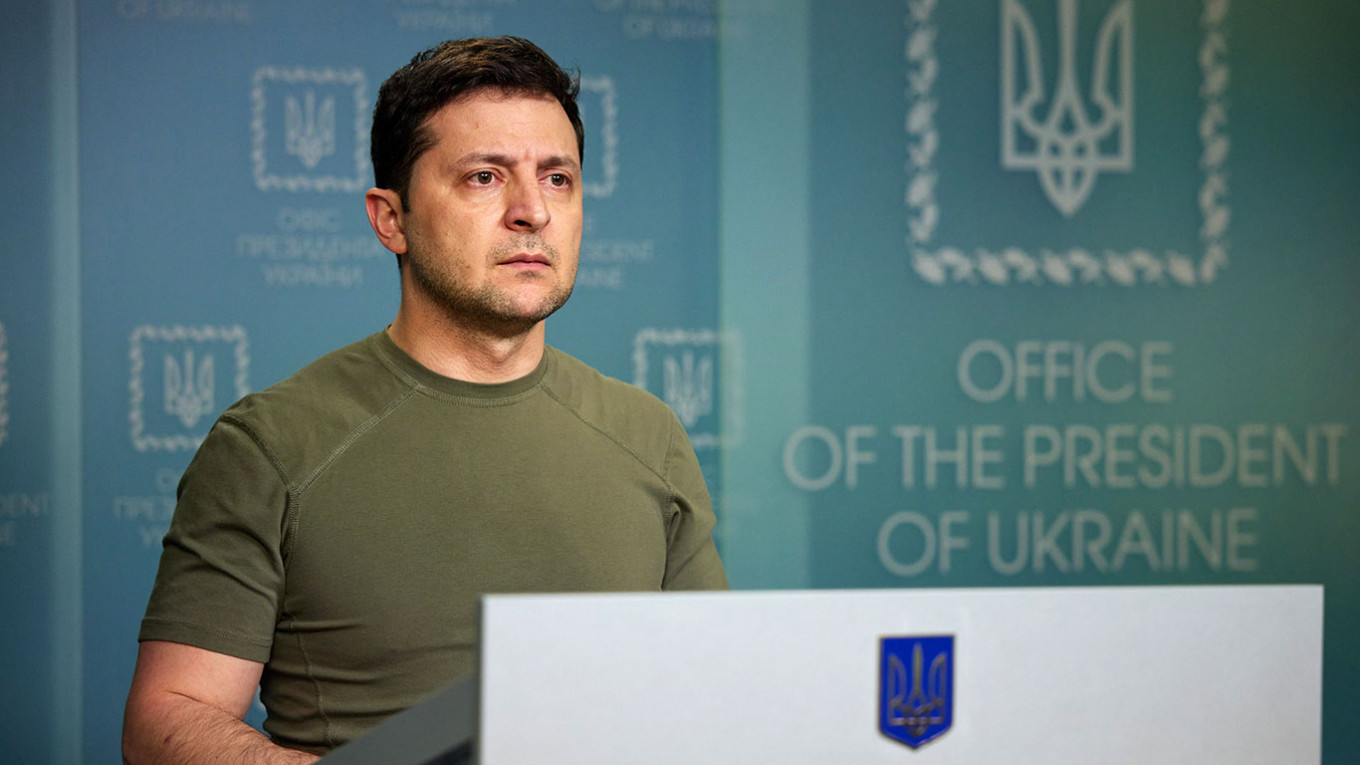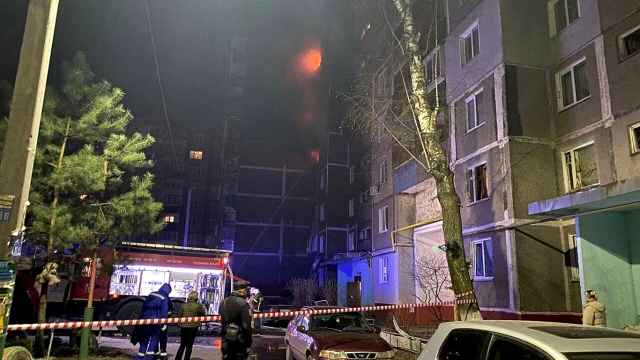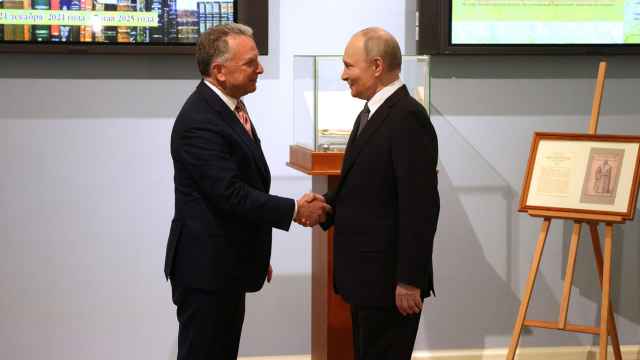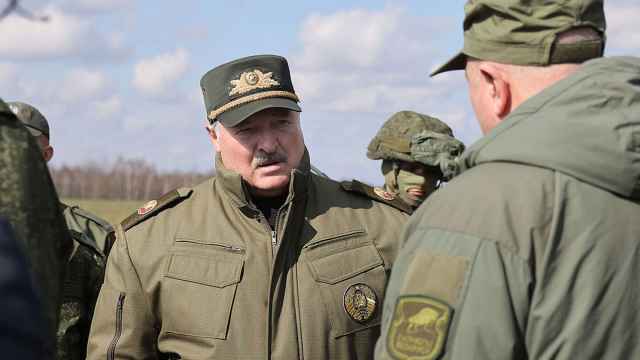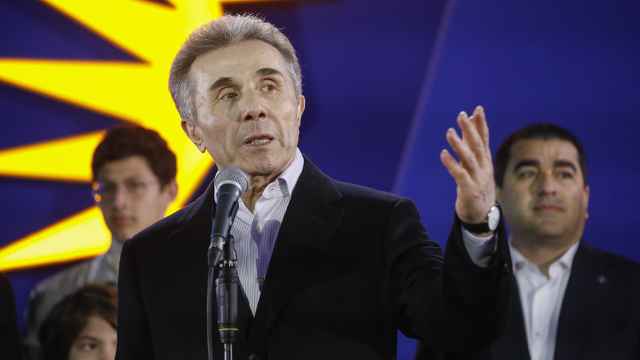With online posts in Hebrew and appeals to Jews to "cry out" in response to Russia's invasion, Ukrainian President Volodymyr Zelensky has invoked his faith to rally support for his embattled country.
The 44-year-old comedian-turned-president told the Times of Israel in 2020 that he had an "ordinary... Jewish upbringing," explaining "most Jewish families in the Soviet Union were not religious."
He has also described religion as a personal matter and even swore his presidential oath on the Bible.
But since Russia's invasion began on February 24, Zelensky has made explicit reference to Judaism in stirring social media posts seeking to rally support for Ukraine.
On Wednesday, a day after a Russian attack on Kyiv's television mast beside Babi Yar — the site of a World War II Nazi massacre in which over 30,000 of the city's Jews were shot — Zelensky reacted with outrage.
"I call now on all the Jews of the world — do you not see what is happening here? This is why it's important for millions of Jews around the world not to stay silent in the face of such sights. Because Nazism was born in silence," he wrote in Hebrew on the Telegram messenger service.
The following day, Zelensky, who has visited Israel many times and said he has family there, reached out again to Jews.
He told a news conference he was grateful for "a beautiful picture of people wrapped in the Ukraine flag at the Western Wall" — in Israeli-annexed east Jerusalem considered the holiest site where Jews can pray.
Zelensky added, however, that he did not feel "that the Israeli government had wrapped itself with the Ukranian flag".
Unique role
Zelensky's comments appeared a clear attempt to broaden support for the Ukranian cause among Jews and especially within Israel, where Prime Minister Naftali Bennett has avoided forceful condemnations of Russia, seeking to preserve delicate security ties with Moscow.
But his public referencing of his Judaism amid an unprecedented crisis is not just a tactic to rally Jewish goodwill, experts and a prominent Soviet-era dissident who knows the Ukranian president personally have said.
Zelensky's "Jewishness is important for him," said Nathan Sharansky, who spent years in a Soviet Gulag accused of treason for seeking permission to move to Israel.
"He is not a Jew who is making secret of his Jewishness and he is not a Jew who is looking for some other identity," Sharansky told AFP.
Sharansky, who has spoken to Zelensky's chief-of-staff in recent days, was born in Ukraine and helped spark the Glasnost reforms that presaged the downfall of the Soviet Union.
After a high-profile release from Soviet custody, he moved to Israel in 1986, where he held various senior public roles and is now a leading global figure in efforts to redress anti-Semitism.
He noted that Zelensky is part of a long tradition of Jews in eastern European history who faced death for standing up to autocracy, but said the Ukrainian president's Judaism may prove to have broader implications, including as a counter to rising anti-Semitism.
"This unique role Zelensky is playing in uniting the Ukrainian nation, without hiding his Jewish identity, I think it can definitely help to overcome many prejudices," he said.
David and Goliath
Lisa Maurice, a senior lecturer in the classical studies department at Bar Ilan University near Tel Aviv, told AFP she saw signs of Jewish influence in Zelensky's public posture, including his social media posts.
"We very much have this tradition of the David and Goliath. We are always the little guy against the big guy," she said, clarifying that her comments apply to Jewish historical narratives, not Israel's current military.
"All our heroes, even the military heros, fight not because they want to fight, not because they are aggressive, but because it is the right thing to do. That is a really strong tradition in Judaism," she said.
The Jewish Telegraph Agency, the 100-year-old news wire covering Jewish affairs, said Zelensky's "leadership is resonating... with Jews the world over" — citing several Jewish writers celebrating his resistance to an invading army.
"As a Jew, it is impossible not to feel proud of the courage, dignity, and defiance shown by Zelensky at this moment," Molly Crabapple, a prominent writer who has contributed to the New Yorker magazine and the New York Times, tweeted.
A Message from The Moscow Times:
Dear readers,
We are facing unprecedented challenges. Russia's Prosecutor General's Office has designated The Moscow Times as an "undesirable" organization, criminalizing our work and putting our staff at risk of prosecution. This follows our earlier unjust labeling as a "foreign agent."
These actions are direct attempts to silence independent journalism in Russia. The authorities claim our work "discredits the decisions of the Russian leadership." We see things differently: we strive to provide accurate, unbiased reporting on Russia.
We, the journalists of The Moscow Times, refuse to be silenced. But to continue our work, we need your help.
Your support, no matter how small, makes a world of difference. If you can, please support us monthly starting from just $2. It's quick to set up, and every contribution makes a significant impact.
By supporting The Moscow Times, you're defending open, independent journalism in the face of repression. Thank you for standing with us.
Remind me later.


